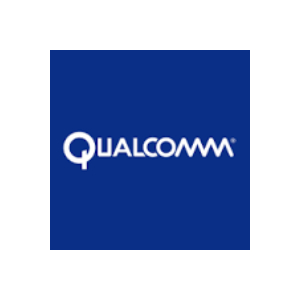Job Description
General Summary:
Overview:
In this highly visible role, you will be responsible to develop advanced packaging technologies, define assembly baseline processes that are optimized for performance, reliability, yield and cost across multiple product application spaces including 5G mobile, high performance computing, automotive, IoT, etc.
Extensive knowledge and experience in package architecture, assembly processes, thermal-mechanical, materials, and chip-package-interactions are required. This position requires defining the packaging roadmap, planning the resources needed and identifying gaps, and providing feedback to upper management.
In addition to the technical role, this role is expected to manage, train, hire and mentor junior engineers.
This position also requires the ability to lead cross-functional teams, manage multiple foundries and OSATs, and resolve complex technical issues.
Responsibilities include:
Perform early analysis on 2.5/3D structure and establish design guidelines
Work with teams to update PKG guideline for next generation products
Work with core teams to define next generation package PDN specs and methodology
Work with Advanced Technology team to develop more robust future PKG technology
Update the design & analysis flow and automate the process
Create technical documentation and presentations
Minimum Qualifications:
M.S. in Electrical, Mechanical, or Materials Engineering or equivalent.
7+ years of experience in advanced packaging technology development, new product introduction, and high volume manufacturing in the mobile, compute, or automotive market.
Expertise in advanced packaging technologies such as 2.5D/3D, RDL, fanout bridge, FCBGA, and MCM.
Understanding semiconductor industry packaging trends, end-user packaging considerations, and previous experience with high performance computing products.
Hands-on experience in packaging assembly processes, materials, equipment, and design rules.
Good understanding in package architecture, high density interconnect, performance, thermal-mechanical, reliability, and cost constraints.
Experience working with foundries and OSATs to bring up packaging solutions from concept to HVM.
Excellent verbal and written communication skills and organized technical project management skills.
Ability to lead multi-functional teams to solve complex technical problems.
Ph.D. in Electrical, Mechanical, or Materials Engineering or equivalent.
9+ years of experience in semiconductor packaging technology and process development or related work experience.
Knowledge of reliability standard, test methods, qualification procedure, and FA techniques.
Familiar with substrate manufacturing processes and design rules.
Programming or scripting experience using c/c++ or Perl/Python is a plus.
Qualcomm
San Diego, CA
QUALCOMM Incorporated designs, develops, manufactures, and markets digital communication products worldwide. It operates through three segments: Qualcomm CDMA Technologies (QCT); Qualcomm Technology Licensing (QTL); and Qualcomm Strategic Initiatives (QSI). The QCT segment develops and supplies integrated circuits and system software based on code division multiple access (CDMA), orthogonal frequency division multiple access, and other technologies for use in wireless voice and data communications, networking, application processing, multimedia, and global positioning system products.
The QTL segment grants licenses or provides rights to use portions of its intellectual property portfolio, which include various patent rights useful in the manufacture and sale of wireless products comprising products implementing CDMA2000, wideband CDMA, CDMA time division duplex, long term evolution, and/or fifth generation standards and their derivatives. The QSI segment invests in early-stage companies in various industries, including automotive, Internet of things, mobile, data center, and healthcare for supporting the design and introduction of new products and services for voice and data communications, and new industry segments.
The company also provides products and services for mobile health; products designed for the implementation of small cells; development, and other services and related products to the United States government agencies and their contractors; and software products, and content and push-to-talk enablement services to wireless operators. In addition, it licenses chipset technology, and products and services for use in data centers. QUALCOMM Incorporated was founded in 1985 and is headquartered in San Diego, California.
-
IndustryInformation Technology
-
No. of Employees35, 400
-
Website
-
Jobs Posted1440


